Throughout history, marches and public rallies have been acoustic in driving political change. Common demonstrations are a vital tool for citizens to use to make their voices heard, whether it is challenging autocratic leadership, challenging colonial rule, or difficult governmental decisions.
Demonstrations give people a way to make claims about the power of the common folks. Protests frequently emerge as strong actions to oppression and injustice in order to improve our planet, which is frequently torn by wars and conflicts.
At the start of the twenty-first era, optimistic predictions were made about the democratization of the country, the protection of citizens ‘ rights, and the decline of discrimination against women and other disadvantaged groups.
Yet, significant challenges still exist despite some improvements in reducing discrimination against marginalized communities in some regions. Discrimination continues to impact women, ethnic groups, LGBT communities, majority groups and others across different areas.
From Russia to Iran, the United States, Afghanistan, and Palestine, 2024 witnessed many social activities by individuals striving for fairness and freedom.
What notable events took place in various parts of the world this time?
Bangladesh’s ‘ next democracy ‘
Sheikh Hasina, the prime minister of Bangladesh, resigned in 2024 as a result of widespread demonstrations. Unrest was caused by a quota system that restricted the employment of 56 % of government positions to specific groups, including 30 % to those who had fled the War of Independence in 1971. Many people claimed that the system proportionally benefited Hasina’s ruling Awami League’s supporters by preventing poor youth from getting jobs in the civil service.
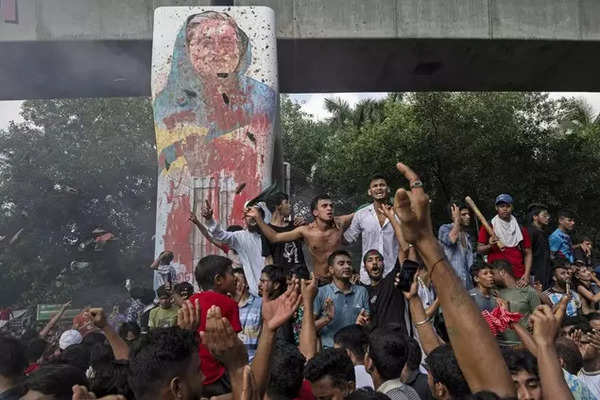
Activists celebrate beside a damaged portrait of Prime Minister Sheikh Hasina after reports of her departure, in Dhaka, Bangladesh.
In 2018, student-led protests had forced Hasina to dismantle the limit program. But, in June 2024, the High Court ruled this emancipation illegal, sparking new protests. At the same time, pension changes at public institutions, which included earnings conclusions, led to widespread faculty and student boycotts. Tensions increased when Hasina referred to protesting individuals as “rajakaar”, a word associated with pro-Pakistan colleagues during Bangladesh’s War of Independence, more angering the people.
The administration’s answer included aggressive reprisals. The Awami League’s scholar wing and armed forces used tear gas, life bullets, and bulk prosecutions against protesters. The demise of college student Abu Sayeed, captured on video, became a symbol of the action, sparking a global noncooperation activity. Despite lockdowns, thousands marched to Dhaka. In the end, Hasina resigned and fled the country, leaving Bangladesh under time management and greatly divided.
Political scientists referred to Hasina’s administration as an example of” aggressive authoritarianism,” in which the ruling party used state resources to stifle the criticism and produce an uneven social environment.
While some have hailed Sheikh Hasina’s resignation as Bangladesh’s” next freedom”, the region’s future remains ambiguous. Reviews of attacks on minorities under the interval administration have posed questions about the direction of the country. Does Bangladesh evolve into a more equitable and liberal politics, or will it move toward greater Religion, mirroring Pakistan’s route? Bangladesh’s citizens are the ones to make decisions.
” Russia without Putin”
In Russia, big audiences gathered on March 1, 2024, to lament opposition leader Alexei Navalny. Navalny, a prominent critique of President Vladimir Putin, died in prison on February 16, 2024, at the age of 47. His backers alleged crime against the authorities.
During the death, slogans like” Russia may be free”,” No to war”,” Russia without Putin”,” We didn’t forgive”, and” Putin is a criminal” were heard. Napoleon was well-known for his incisive censure of Putin and his plans.
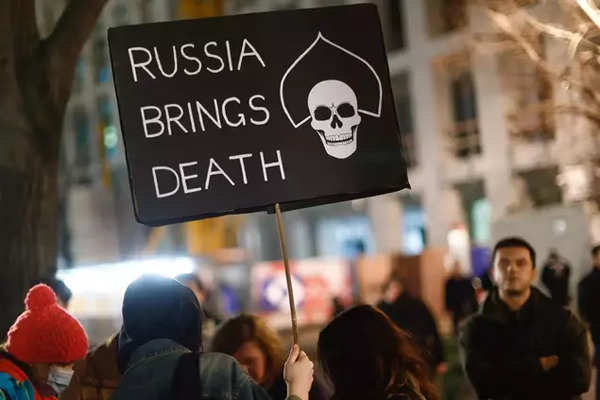
Citizens lay bouquets and gentle lights for Alexei Navalny, critique of Russian President Vladimir Putin, near the Russian Embassy on February 16, 2024 in Berlin, Germany.
Since 2000, Vladimir Putin has been the main force in Russian politicians. Before becoming prime minister for four years, he was elected president in 2012 and served two words before resuming that post. He won election in 2018 and again in 2024.
Putin has expanded his influence over the internet and state organizations. This power has been strengthened by a preference for patriotism and West-of-West relations. Since his return to the president, Russian officials have more restricted media flexibility, silencing opposition accents.
Armenian people sing to rally
The Taliban passed fresh “vice and morality” legislation in August 2024 that forbid women from singing in public or letting their voices be heard outside of their homes. Additionally, the laws mandate that girls wear makeup and have a female guardian with them when traveling or using public transit. Moreover, women are prohibited from befriending those considered “infidels”.
The rules state,” Whenever an older girl leaves her home out of necessity, she is obliged to conceal her voice, face, and system”. When outside of their houses, people are also required to cover their physiques, from their abdomens to their knees.
Women are now prohibited from gazing straight at men who are not related to them, and cab drivers experience punishment for transporting alone women. Women and girls who break these rules may be detained and subject to sanctions as necessary from Taliban authorities.
Since taking office three years ago, the Taliban have only actually released one of the few laws that express their intention to reform Afghan society and greatly restrict women’s rights. Under Taliban law, Afghan women’s conditions were now hard, but have sincegotten worse.
A report by Amnesty International in March 2023, titled” People, Protest and Power- Confronting the Taliban”, highlighted that before the Taliban takeover in August 2021, there were about two million women in intermediate schools, and many people were pursuing higher education and working in various areas, including treatments, politics, and organization. According to the review,” the transfer of the Taliban in Afghanistan on August 15, 2021, took away these understated but significant accomplishments from women and girls.”
Afghan women continue to speak out against the Taliban’s arbitrary and anti-human rules, raising their voices wherever they can. Following the Taliban’s takeover, people began peaceful protests demanding social and political righteousness and their right. In the Amnesty statement, Wahida Amiri from Afghanistan’s Women Spontaneous Movement said,” We refuse to accept being jailed in our homes, we refuse to be discriminated against, we refuse to get repressed”.
In response to the fresh “vice and righteousness” laws, Afghan people turned to the internet to protest. According to a report from NPR, they” committed what would be a violence” in their own country. They sang. They sung and uploaded videos of themselves chanting tracks of weight. Fatima Etihadi, who fled Afghanistan a year after the Taliban’s takeover, shared a video on social media where she and her companions sang,” The rose did unfold, revealing a flower of liberty. I sing the anthem of freedom, again, again, freedom”.
Afghan women are currently living in a government that views them as needing to be hidden. However, as the NPR report said, Afghan women are raising their voices to anyone who’ll hear them.
Pro-Palestine demonstrations take place in universities around the world.
The Hamas attack on Israel on October 7, 2023, and the subsequent war led to protests worldwide. Many of these demonstrations called for an end to the conflict, which caused the deaths of at least 1, 200 Israelis and 44, 000 Palestinians.
In 2024, US college campuses became central to the debate over pro-Palestinian demonstrations. Over 3, 100 people were arrested or detained during protests, most of which were peaceful. Beginning in mid-April, when Columbia University students pitched tents on the campus while the New York City University president testified before Congress about antisemitism, the protests frequently included encampments.
The protesters were detained the following day when the police arrived and set off a wave of action at other colleges in the US.
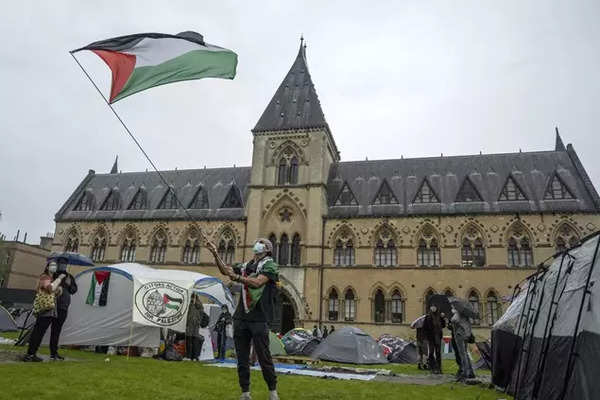
A student activist waves a Palestinian flag at a pro-Palestine encampment at Oxford University on May 6, 2024 in Oxford, England.
Students resisted funding a university divestment from Israel. For example, cutting financial ties with Israeli institutions and ending investments in Israeli businesses or those doing business with Israel. According to student activists, these institutions were involved in the Gaza conflict that was raging.
These protests spread beyond the US, with students in the UK, France, Australia, Mexico, and other countries organizing similar demonstrations and creating” solidarity encampments”.
Iranian women continue to resist
Two years after the” Woman, Life, Freedom” protests shook Iran, following Mahsa Amini’s death in 2022, women in Iran continue to resist. After being confronted by security for not wearing a hijab, a young Iranian woman at Tehran’s Islamic Azad University removed her underwear. Moreover, it’s becoming more common to see a woman passing by without a mandatory headscarf, or hijab, a report by news agency AP said in September.
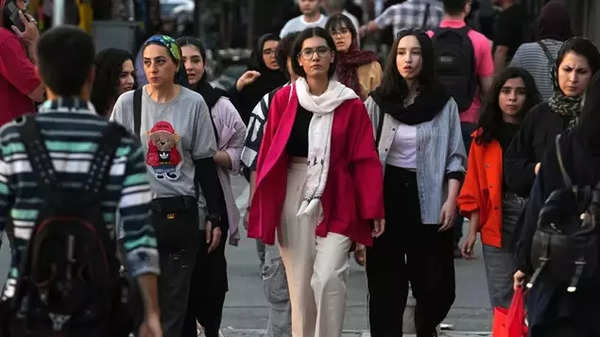
Iranian women, some without wearing their mandatory Islamic headscarves, walk in downtown Tehran, Iran, Saturday, September 9, 2023.
The report further said,” Today, passersby on the streets of Tehran, whether its tony northern suburbs for the wealthy or the working-class neighborhoods of the capital’s southern reaches, now routinely see women without the hijab. Even though it starts at dusk during the day on weekends and during the day, women can be seen with their hair uncovered in parks ‘ major parks, it especially begins at dusk.

An Iranian woman, without wearing her mandatory Islamic headscarf, walks in northern Tehran, Iran, Friday, November 15, 2024.
Additionally, the Iranian government has halted passing a more stringent law banning the hijab, which many believe could rekindle protests similar to those that occurred after Amini’s death. After being detained by the morality police for allegedly not wearing her hijab properly, Amini passed away on September 16, 2022. More women have since defied the hijab law despite the danger of harassment and arrest.
Protest against anti-LGBTQ laws
Protesters gathered outside the Bulgarian parliament in August 2024 to protest a contentious legal amendment that would outlaw discussions of “non-traditional sexual choices” in classrooms. The protest followed the failure of the country’s President, Rumen Radev, to veto the bill.
Feminist, LGBTQ+, and other rights groups organized the demonstration, demanding the repeal of the amendment, which its supporters referred to as a ban on “LGBTQ+ propaganda in schools”.
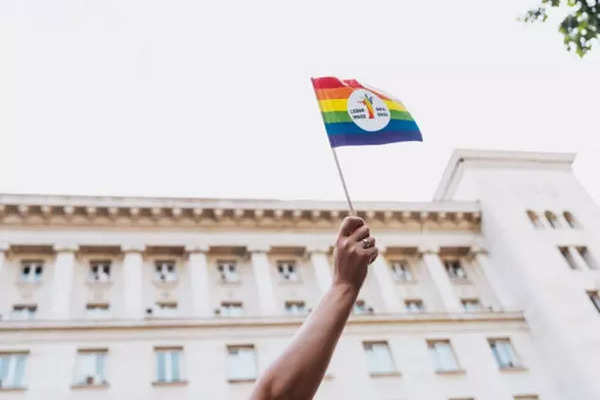
A protester with a rainbow flag during a demonstration against changes to Bulgaria’s education law outside the presidential palace in Sofia, Bulgaria, on Thursday, August 15, 2024.
The pro-Russian Vazrazhdane party approved of the amendment, which was unanticipated by some pro-European Union parties.
In the 240-seat Bulgarian parliament, 159 lawmakers voted in favor of the change.
The amendment prohibits” the promotion, popularization, and support of ideas and opinions related to non-traditional sexual orientation or sexual identification other than biological” in schools.
Day of’ No’ silence
The Day of Silence, observed annually in April, is a student-led protest aimed at highlighting the silencing and marginalization of LGBTQ+ voices in US schools.
Participants typically keep quiet throughout the day to express the struggles that LGBTQ+ students face due to harassment and discrimination.
This event traces its origins to April 1996 when Maria Pulzetti, a student at the University of Virginia, organized a silent protest for LGBTQ rights. Pulzetti, who was inspired by a class on the Civil Rights Movement, attempted to use non-violent means to highlight the voices that were unheard in her college community. Students who joined the demonstration kept quiet throughout the entire school day, handing out cards explaining that their silence was a protest against homophobia and discrimination.
In 2024, however, the Day of Silence took on a new form, evolving into the” Day of ( No ) Silence”. Students and activists chose to use their voices to speak out louder about the issues facing LGBTQ+ communities rather than just observe silence.
” Being silent itself has never been the goal, that’s always been a tactic”, CNN quoted Gilliam as saying.




